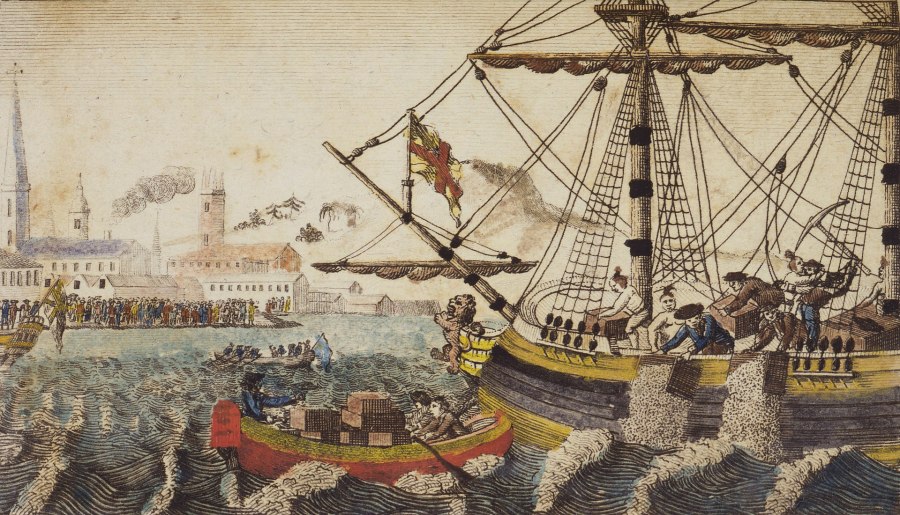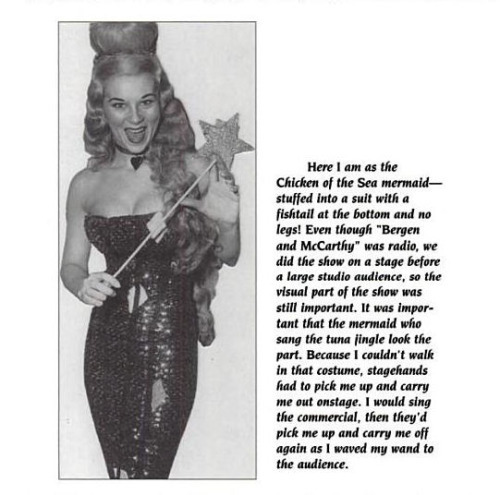Quest: Poisson Party on the Sea Chicken – The Boston Tea Party and Chicken of the Sea brand tuna
https://wiki.wizard101central.com/wiki/Quest:Poisson_Party
https://wiki.wizard101central.com/wiki/Location:Sea_Chicken
https://en.wikipedia.org/wiki/Chicken_of_the_Sea
https://chickenofthesea.com/blog/all-about-catalina/
Thank you to Ashley D. for this one.
Your wizard accompanies Red Rosa, a local Patriôte aboard the Sea Chicken, a Monquistan galleon, to sabotage the crates of imported tuna in its hold, during the quest Poisson Party and instance Sea Chicken.
After the Empress outlaws fishing and imposes a curfew, the Pingouins lead by Red Rosa decide to fight back. She and your wizard dump the crates of frozen tuna into the Walruskberg Harbor.
The Boston Tea Party was an American political and mercantile protest on December 16, 1773, by the Sons of Liberty in Boston in colonial Massachusetts. The target was the Tea Act of May 10, 1773, which allowed the British East India Company to sell tea from China in American colonies without paying taxes apart from those imposed by the Townshend Acts. The Sons of Liberty strongly opposed the taxes in the Townshend Act as a violation of their rights. In response, the Sons of Liberty, some disguised as Native Americans, destroyed an entire shipment of tea sent by the East India Company.

The demonstrators boarded the ships and threw the chests of tea into the Boston Harbor. The British government considered the protest an act of treason and responded harshly. Days later the Philadelphia Tea Party, instead of destroying a shipment of tea, sent the ship back to England without unloading. The episodes escalated into the American Revolution, and the Boston Tea Party became an iconic event of American history. Since then other political protests such as the Tea Party movement have referred to themselves as historical successors to the Boston protest of 1773.
The Tea Party was the culmination of a resistance movement throughout British America against the Tea Act, a tax passed by the British Parliament in 1773. Colonists objected to the Tea Act believing it violated their rights as Englishmen to “no taxation without representation”, that is, to be taxed only by their own elected representatives and not by a parliament in which they were not represented. The well-connected East India Company also had been granted competitive advantages over colonial tea importers, who resented the move and feared additional infringement on their business. Protesters had prevented the unloading of tea in three other colonies, but in Boston, embattled Royal Governor Thomas Hutchinson refused to allow the tea to be returned to Great Britain.
The Boston Tea Party was a significant event that helped accelerate and intensify colonial support for the American Revolution. Parliament responded in 1774 with the Intolerable Acts, or Coercive Acts, which, among other provisions, ended local self-government in Massachusetts and closed Boston’s commerce. Colonists throughout the Thirteen Colonies responded to the Intolerable Acts with additional acts of protest, and by convening the First Continental Congress in Philadelphia, which petitioned the British monarch for repeal of the acts and coordinated colonial resistance to them, culminating in the October 1774 Continental Association. The crisis escalated, leading to the Battles of Lexington and Concord on April 19, 1775, which marked the beginning of the American Revolutionary War.
Chicken of the Sea is a packager and provider of seafood, owned by the Thai Union Group in Samut Sakhon, Thailand. The brand is attached to tuna, salmon, clams, crab, shrimp, mackerel, oysters, kippers and sardines in cans, pouches and cups.
The company was founded when Frank Van Camp his son Gilbert Van Camp moved to San Pedro, Los Angeles in 1914 and purchased the California Tuna Canning Company , changing the name to the Van Camp Sea Food Company. They adopted the advertising slogan “Chicken of the Sea” in the 1950s. The phrase “Chicken of the Sea”, first devised as a way to describe the taste, was so successful that soon it also became the company name.
The company’s official explanation for the name of their product is that, in the “old days”, fishermen referred to white albacore tuna as “chicken of the sea”. It was called this because of the white color of its flesh and mild flavor reminded them of chicken. The founder of the company thought this would be a unique name for a brand of tuna.
Their advertising mascot, Catalina, a blonde mermaid with a golden scepter, was introduced in the 1950s and soon became a familiar product icon. In her book The Longest Trek: My Tour of the Galaxy, Grace Lee Whitney is credited as being the original Chicken of the Sea Mermaid. This is corraborated at the official Chicken of the Sea website.
The current list of all the (known) Polaris references can be found here.
Although I am well versed in Pop Culture references but I do not claim to have caught them all. Let me know your favorites in the comments and if I’ve missed one you caught, let me know so I can add it to the list.
Text for this article is excerpted from the linked wiki pages
The Sea Chicken image is from Wizard101, and is copyright of KingsIsle Entertainment
The Boston Tea Party engraving is borrowed from Wikipedia and is in the public domain.
Chicken of the Sea logo is TM and copyright Thai Union Group
Chicken of the Sea restaurant image is copyright L J Pelletier and is borrowed from Wikipedia. It is shared under the CC BY-SA 2.0 Creative Commons Act
Grace Lee Whitney as Catalina the Mermaid image is from page 36 of her book. Whitney, Grace Lee; Denney, Jim (1998). The Longest Trek: My Tour of the Galaxy (1st ed.). Linden Publishing.
Image usage qualifies as fair use under US copyright law.



